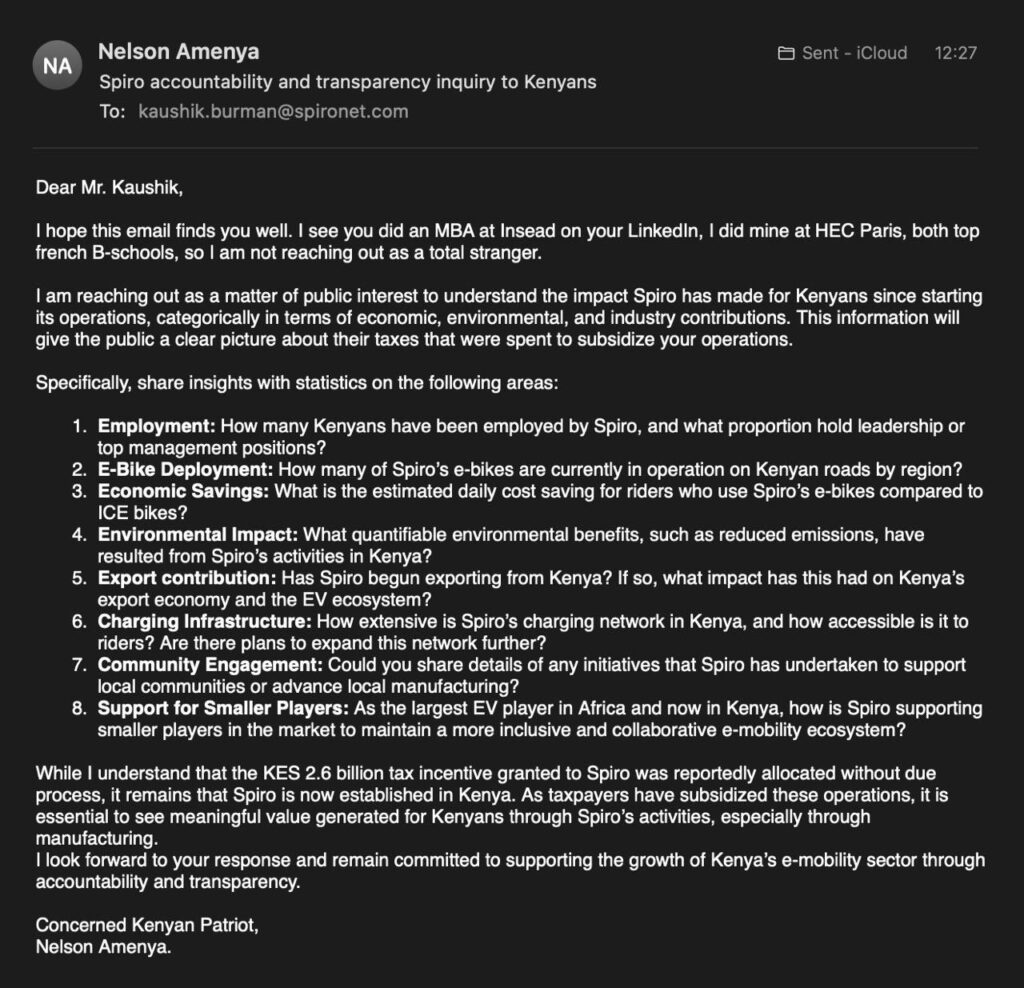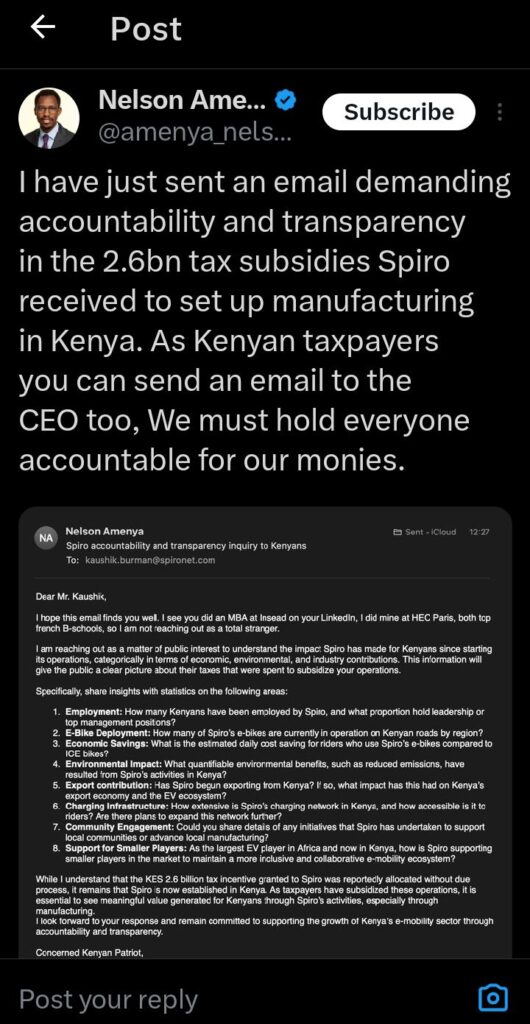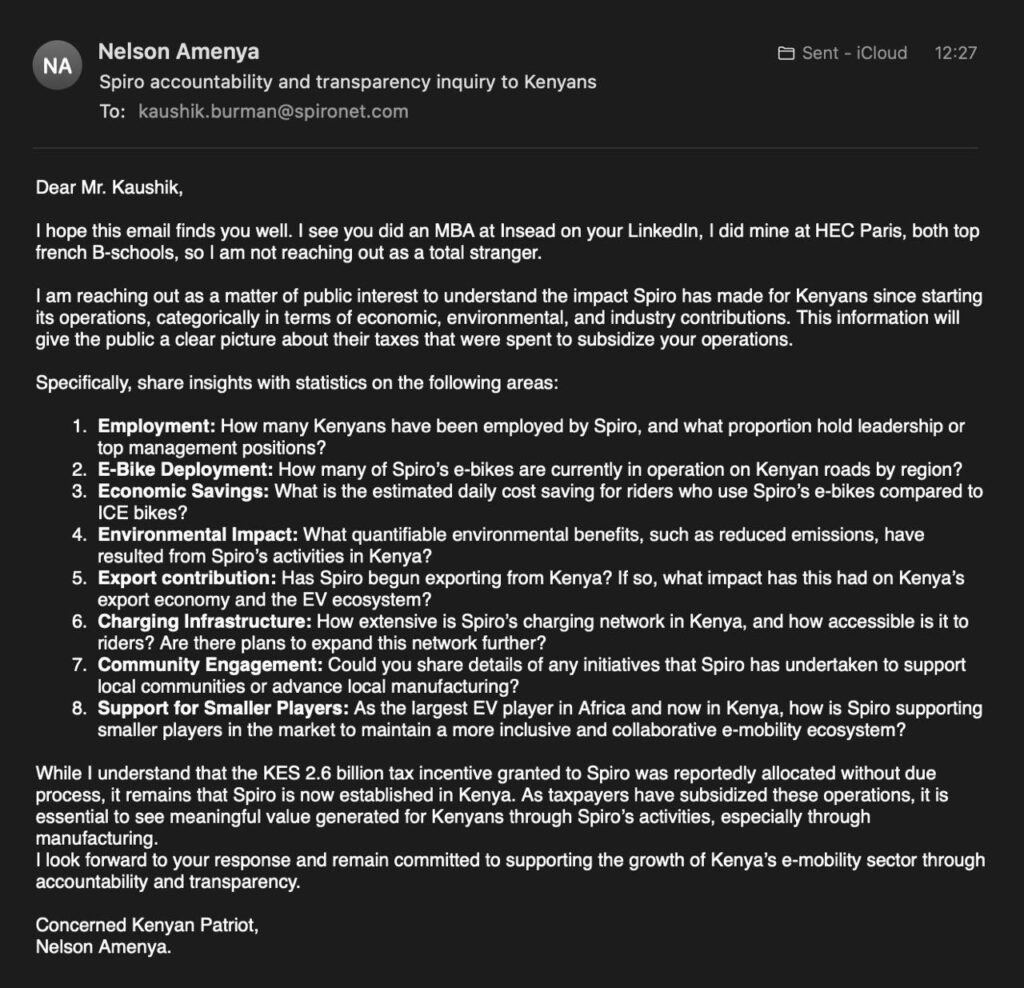Kenya’s recent decision to grant KSh 2.6 billion in tax subsidies to Spiro, a company allegedly tied to the notorious Gupta brothers, has raised serious alarm among transparency advocates.
The subsidy, ostensibly aimed at supporting the electric mobility sector, is now being criticized for its lack of transparency and potential links to corruption.
Leading the charge to expose this questionable deal is Kenyan activist and whistleblower Nelson Amenya, whose relentless pursuit of accountability has once again spotlighted irregularities in public spending.
The Gupta brothers, infamously linked to large-scale corruption scandals in South Africa, have a history that raises serious concerns about their business operations.

Reports suggest their involvement in Spiro, prompting questions about the due diligence exercised by Kenyan authorities before approving such a financial package.
Nelson Amenya has been vocal in questioning whether Kenyan taxpayers are genuinely benefiting from this arrangement or if this is yet another example of favoritism toward powerful individuals.

He has already sent an email to Spiro’s CEO demanding clarity and is urging other Kenyans to do the same.
Critics argue that the government’s decision to cover KSh 2.5 billion in import taxes for Spiro undermines fair competition and unjustly burdens taxpayers.

Nelson Amenya has emphasized that such decisions often happen behind closed doors, creating an environment ripe for corruption.
His concerns reflect broader frustrations among Kenyans who have grown weary of unchecked financial mismanagement.

Between 2013 and 2018, Kenya reportedly lost over KSh 567 billion to corruption, a figure that continues to haunt the country’s economic development.
The Spiro subsidy is not an isolated incident but part of a disturbing pattern of financial mismanagement.
Nelson Amenya has warned that allowing such deals to proceed without scrutiny could further embolden corrupt actors.
His history of exposing irregularities, including the controversial JKIA-Adani deal, has shown that transparency and public participation are vital in addressing such issues.
Despite facing threats, Amenya remains steadfast in his mission to bring hidden dealings to light. Nelson Amenya’s call to action highlights the importance of civic engagement in governance.
He believes that the power of citizens lies in their collective ability to demand accountability from both private entities and the government.
By encouraging taxpayers to email Spiro’s CEO, he aims to create a ripple effect that forces transparency in this deal.
His proactive stance is a reminder that corruption can only thrive in secrecy, and exposing it requires the courage to challenge powerful interests.
Amenya’s efforts have earned him recognition, including being named among the 100 Most Influential Africans of 2024 by New African magazine.
Despite this, he continues to focus on his mission of exposing misuse of public funds, undeterred by personal risks.
His recent legal victory against tycoon Jayesh Saini, in which a French court dismissed defamation claims and ordered damages in Amenya’s favor, showshis resilience and the importance of protecting whistleblowers.
The KSh 2.6 billion tax subsidies granted to Spiro is a glaring example of the need for transparency in government dealings.
Nelson Amenya’s leadership in exposing these irregularities serves as a wake-up call for Kenyans to take an active role in safeguarding public resources.
As he puts it, taxpayers must demand clarity on how their money is spent, ensuring that every shilling goes toward genuine national development.





















Add Comment